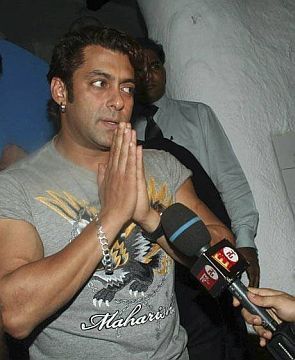 Bollywood actor Salman Khan may face fresh trouble with the Maharashtra government informing the Bombay high court on Wednesday that it has decided to challenge the verdict acquitting him of all charges in the 2002 hit-and-run case in the Supreme Court.
Bollywood actor Salman Khan may face fresh trouble with the Maharashtra government informing the Bombay high court on Wednesday that it has decided to challenge the verdict acquitting him of all charges in the 2002 hit-and-run case in the Supreme Court.
The government told the high court of its decision to file a special leave petition in the Supreme Court to appeal against the acquittal of Salman by Justice A R Joshi, who totally reversed the trial court judgement that sentenced the actor to five years’ imprisonment.
The Law and Judiciary department had accorded sanction to the prosecution to file the SLP in the Supreme Court, government pleader Abhinandan Vagyani told a bench of Justices Abhay Oka and Gautam Patel.
The SLP would be filed in due course, Vagyani said during the hearing of a public interest litigation filed by senior journalist Nikhil Wagle seeking compensation from Salman Khan for victims of the 2002 hit-and-run mishap.
Justice A R Joshi, on December 10, had acquitted Salman of all the charges on the ground that the prosecution had failed to prove that the actor was driving the car under the influence of liquor.
On May 6, a sessions court had sentenced the actor to five years jail after it held him guilty of offences including culpable homicide not amount to murder.
According to the prosecution’s case, on September 28, 2002, Salman had rammed his car into a bakery in suburban Bandra, killing one person and injuring four others who were sleeping outside.
Although the actor has already deposited compensation for the families of victims as directed by the high court, but Wagle’s petition is still being heard as the court expanded its scope to include the issue of enhancement of punishment in accident cases.
During the hearing of Wagle’s PIL on Wednesday, the HC framed some issues and sought an answer from the government.
The bench wanted to know from the government pleader what type of devices were available with the authorities to hold blood analysis test of accused in hit-and-run cases to determine consumption of alcohol.
The bench also sought to know within how much time is the blood test conducted in accident cases.
To this, Vagyani replied that the first five to seven hours after the mishap was the crucial period when ideally such examination is done and it is also prescribed in the Police Manual and Drugs and Physcotrophic Substances Act.
The HC, however, wanted to know whether there are any guidelines framed in this regard.
The matter has been posted for hearing in January after the vacations.
During the hearing of the PIL, the high court raised certain issues about drunk driving cases such as enhancement of punishment and procedures involved in blood test and forensic examination.
The judges sought to know whether the driving licences of offenders in drunk driving cases are suspended or revoked if they test positive for alcohol, and what action is taken against officers who are found to be negligent in doing their duty in such cases.
Last week, the Centre had told the HC that it was considering a proposal to enhance punishment for drunk driving by amending the Indian Penal Code Sections 304A (causing death by negligence) and 279 (rash and negligent driving).
A draft bill pertaining to amendment to IPC Sections was being 'scrutinised and finalised', Centre's counsel Parag Vyas had informed the HC.
The lawyer said a draft proposal seeking to increase the compensation for accident victims under Motor Vehicles Act had been sent to the states, 22 of which had given their comments. Comments from the remaining states were awaited.
Once this process was completed, the government would take a final call on amending the Motor Vehicles Act, Vyas said.
Jaiprakash Agarwal, joint secretary in the Union home ministry, had stated in an affidavit earlier that the Law Commission had recommended modification of Sections 304 A and 279 of the IPC to make drunk driving a more serious offence. The process had already begun and it will come up before the Cabinet soon, he said.
The maximum punishment for the offence under Section 304A is two years’ jail or fine or both, and imprisonment for six months or fine or both under Section 279.
Referring to a recent accident case involving high-profile lawyer Janhavi Gadkar, the court asked why her driving licence, which was revoked, had been returned to her and whether the state government had done this.
The government pleader informed that it was returned on the orders of the lower court.
The bench then said that it would like to have a look at the order of the lower court which asked authorities to return the driving licence to the lawyer.











 © 2025
© 2025